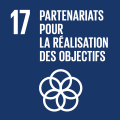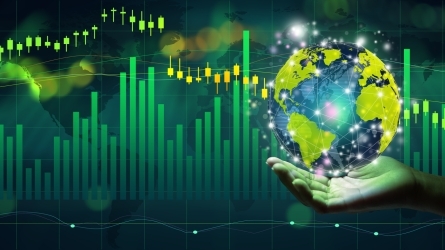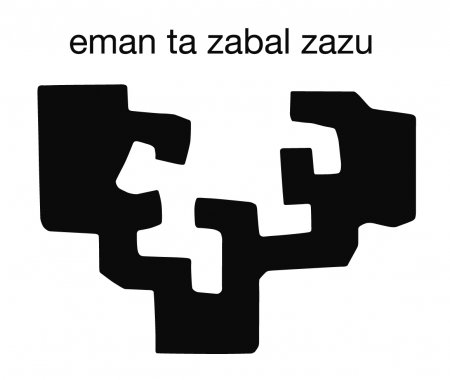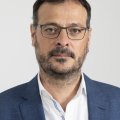Recent advances and challenges in social impact measurement
Description
Social impact refers, in general, to the influence that an organization has on its environment. In an increasingly interconnected world and with growing challenges of great importance for people and the planet, the social impact of organizations has become a crucial aspect to evaluate their contribution to global well-being. This summer course offers the opportunity to explore, reflect and debate the latest trends and innovative practices in this field.
Interest in measuring social impact is in a phase of growing expansion and construction – there are currently more than 150 different methodologies to measure impact – especially among those entities committed to objectives beyond economic profitability, such as non-profit organizations or various areas of public intervention such as health or education. However, some challenges have also arisen, with some initiatives that could be considered forms of “impact washing.”
This Course aims to provide a panoramic view of advanced international practices in social impact measurement and management, as well as share the most recent developments in regulation and emerging trends. In addition, debate will be encouraged on the various perspectives and methodological approaches in the field of social impact measurement.
We will have the participation of world-renowned experts in the measurement and management of social impact, from public and private institutions, and non-profit organizations, who will share their practical experiences and visions on the subject. By the end of the Course, participants will not only have acquired up-to-date knowledge on the state of the art in social impact measurement, but will also have established valuable international connections and generated innovative ideas for practical application in various global contexts.
Objectives
Provide an updated vision and facilitate critical reflection on the essential components of all social impact measurement and management. This implies delving into its approach and, therefore, into the theoretical and methodological foundations of measuring and managing social impact, as well as reflecting on its practical, useful and relevant application in different global contexts.
Stimulate research and dissemination in the field of measuring the social impact of public and private institutions, as well as non-profit organizations. It seeks to promote the generation of new knowledge, the exchange of ideas and the dissemination of best practices in measuring social impact, both through academic research and collaboration between the participating people and the institutions represented.
Position the UPV/EHU as a world reference in the measurement and management of social impact. The Course seeks to contribute to the international recognition of the UPV/EHU as a leading institution in the field of measuring and managing the social impact of higher education institutions, taking advantage of its resources and commitment to social impact.
Activity directed to
- All public
- University student
- Students not from university
- Teachers
- Professionals
Organised by
Directors
David Hoyos is a Full Professor in the Department of Quantitative Methods, Faculty of Economics and Business, University of the Basque Country (UPV/EHU). Since 2021 he is also director of EHUgune – Commitment and Social Impact of the UPV / EHU. He has a European PhD in Economics from the University of the Basque Country (UPV / EHU) and M.A. (econ) in Development Economics from the University of Manchester (UK). He has been a researcher hired between 2002 and 2010 and since 2010 he has been a professor of econometrics at the University of the Basque Country (UPV / EHU). He has also been a visiting researcher at Queen's University Belfast (UK) in 2009. He is an associate researcher at EKOPOL (Research Group on Ecological Economy and Political Ecology), BC3 (Basque Center on Climate Change) and HEGOA (Institute for Climate Change Studies). Development and International Cooperation). He is a collaborator and member of the Committee of Experts of the UNESCO Chair on sustainable development and environmental education of the UPV / EHU.
Speakers
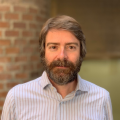
Charles Castro
Presidente de ESimpact, ESIMPACT, Asociación española para la difusión y generación de conocimiento sobre la medición y gestión del impacto social. Soy Licenciado en Sociología por New York University y he curso un Master en Administración Pública (MPA) por Robert F. Wagner Graduate School of Public Service (New York University) con una especialización en la Evaluación y Análisis de Políticas Públicas. Actualmente soy Responsable de Servicios de Evaluación y Medición de Impacto en ECODES donde he desarrollado una línea de servicios para ayudar a las empresas y organizaciones sociales identificar, visibilizar y cuantificar el valor social, ambiental y socioeconómico que crean para sus principales grupos de interés y para la sociedad en general. Anteriormente, he sido Responsable del Sistema de Gestión Sostenible de ECODES, desde donde lideré la implantación del sistema de gestión sostenible EMASplus y del estándar voluntario ARISTA 3.0 de certificación de la calidad y la integridad en el análisis de sostenibilidad y responsabilidad empresarial. Antes de unirme al equipo de ECODES trabajé más de cinco años en el sector no lucrativo de EEUU en temas relacionados con el desarrollo económico y social de zonas y colectivos en riesgo de

Bernardo García Izquierdo
Doctor en Ciencias Económicas y Empresariales y Master en Gestión Avanzada por la Universidad de Deusto, donde trabajó durante 14 años como profesor, investigador y director del Máster Europeo en Ayuda Internacional Humanitaria. Participante en el Global Civil Society Seminar de la Harvard Kennedy School. Durante más de 30 años ha desarrollado una sólida experiencia en la gestión de entidades no lucrativas. De 2008 a 2017, fue Director General de la Fundación Anesvad. Durante 9 años trabajó como consultor internacional para diferentes programas e iniciativas de Naciones Unidas, otros organismos internacionales, ONGs, centros de investigación, y empresas. Consultor senior en Stone Soup Consulting (B Corp), evaluador de impacto social acreditado por Social Value International, evaluador de Euskalit en gestión de la calidad, y Diplomado como Coach Ontológico por la Universidad del Desarrollo (Santiago de Chile). Miembro fundador y vocal en la Junta Directiva de la Asociación española para la medición del impacto social, ESIMPACT. Consultor y coordinador de la medición de impacto social del Vicerrectorado de Desarrollo Científico-Social y Transferencia de la UPV-EHU. Formador en medición de impacto en diversos cursos y talleres.

Cristina Gil White
Chief Operational Officer at Global Reporting Initiative (GRI). Cristina is a sustainability professional and a proven leader with a number of successes. Cristina currently holds the position of the Chief Operational Officer at GRI. Her almost 3 years on GRI’s Supervisory Board allowed her to start getting to know the organization more closely, and she was thrilled to get an invitation from the CEO to join the most known and respected organization in the sustainability standards and reporting space. Recently, Cristina was Chief Sustainability and Communications Officer at Suzano. Prior to that she was Vice President of Sustainability at Orbia. Next to her experience in the private sector, Cristina held several positions in the NGO world, in sectors that range from environmental conservation and education to poverty alleviation. Some of the organizations she has pertained to include The Nature Conservancy, Rare Conservation, Fundacion EDUCA and Pronatura Noreste. Trained as a chemist, Cristina also holds a degree in Environmental Science. CCristina has held global and regional positions, and worked from Mexico, the U.S., Brazil and now Spain. Since 2021, Cristina Gil is a board member of the World Environment Center. In the past,
David Hoyos is a Full Professor in the Department of Quantitative Methods, Faculty of Economics and Business, University of the Basque Country (UPV/EHU). Since 2021 he is also director of EHUgune – Commitment and Social Impact of the UPV / EHU. He has a European PhD in Economics from the University of the Basque Country (UPV / EHU) and M.A. (econ) in Development Economics from the University of Manchester (UK). He has been a researcher hired between 2002 and 2010 and since 2010 he has been a professor of econometrics at the University of the Basque Country (UPV / EHU). He has also been a visiting researcher at Queen's University Belfast (UK) in 2009. He is an associate researcher at EKOPOL (Research Group on Ecological Economy and Political Ecology), BC3 (Basque Center on Climate Change) and HEGOA (Institute for Climate Change Studies). Development and International Cooperation). He is a collaborator and member of the Committee of Experts of the UNESCO Chair on sustainable development and environmental education of the UPV / EHU.
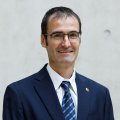
Martin Larraza Kintana
Martin Larraza Kintana es actualmente Vicerrector de Calidad, Economía y Estrategia de la Universidad Pública de Navarra y Catedrático del departamento de Gestión de Empresas de la misma institución. Su labor docente e investigadora refleja su interés por el estudio del comportamiento decisor de las personas, y muy particularmente por el muestran las personas que desarrollan su actividad profesional dentro de las empresas. Sobre esta base, su labor investigadora a lo largo de más de 20 años le ha permitido realizar contribuciones al debate científico internacional en los campos de la Gestión de Recursos Humanos, la Dirección Estratégica, la Empresa Familiar y el Emprendimiento. Su trabajo de investigación ha sido publicado en algunas de las revistas académicas más prestigiosas del campo de la Gestión de Empresas tales como por ejemplo Academy of Management Journal, Strategic Management Journal, Administrative Science Quarterly, Journal of Management Studies, Human Resource Management, Journal of World Business, Small Business Economics o Entrepreneurship Theory and Practice.

Gloria Nunes Rodrigues
International Manager. Euskampus Foundation. University of the Basque Country (UPV/EHU). Spain. Glória Nunes Rodrigues is International Manager at Euskampus Fundazioa. She is actively involved in the implementation of the impact-related activities of the European University Alliance ENLIGHT. Previously, she worked as Research Adviser at the University of Deusto, where she was in charge of the promotion of the social impact of the university research activities. She worked as Policy Officer at the European Commission, DG Education and Culture, in the Unit “European Institute of Innovation and Technology (EIT), Marie SklodowskaCurie Actions and Innovation in Education". She was head of the projects and policy analysis unit of WindEurope and worked at the Instituto de Estudos Estratégicos Internacionais in Lisbon. Glória holds a degree in Political Science and International Relations (Universidade Nova de Lisboa), a Master Degree in European Policy (Institut d’études européennes) and a Diploma from the Institut d'Etudes Politiques de Paris

Charlotte Österman
Charlotte Partner of Pax Tecum Global Consultancy Believing in the power of people, practice and principles to change how society accounts for value, Charlotte is an expert in social value and Social Return on Investment (SROI) supporting organisations understanding their impact. As the Private Sector Lead for Social Value UK, Charlotte provides support and technical expertise to members on their social value journey. She also serves as Director of Sustainable Development for Pax Tecum Global Consultancy, integrating sustainability into strategy, project execution and evaluation. Her background in construction and facilities management has equipped her to drive change in corporate environments and across industries. In the NGO sector, she led efforts to deliver Raleigh’s Emprende program to young entrepreneurs in poverty-stricken rural Nicaragua. A career highlight was the launch of an accredited SROI report in the UK House of Commons, investigating the value generated by UK charity shops. Charlotte is an Accredited Practitioner of Social Value & SROI, Practitioner Member of IEMA, Trustee of the Infinity Branch, and a newly trained Trainer of the UNDP SDG Impact Standards. She’s Swedish born, UK based and lives i A Coruña.

José Luis Retolaza Avalos
Universidad de Deusto
Profesor de Economía de la Deusto Business School, especializado en Contabilidad Social. Doctor en Economía, Licenciado Filosofía, y en Psicología Clínica e Industrial. Master (DEA) en Finanzas y Experto en Métodos Avanzados de Estadística Aplicada. Participa en los Grupos de Investigación HUME (Universidad de Deusto), ECRI (UPV/EHU) y MGCF (Sorbona-París 1). Presidente de Eben (European Business Ethics Network) España, Director Científico de GEAccounting (Global Economic Accounting), Vicepresidente de Aurkilan, y miembro del Comité Científico y Editorial de CIRIEC. Cuenta con más de 50 publicaciones indexadas, y ha participado en múltiples Congresos, Seminarios, Workshops y Conferencias. Con anterioridad a la etapa universitaria ha sido director de varias empresas de consultoría (TECA, OPE, Bultz-Lan), Director de Formación y Empleo de Cáritas y Presidente de REAS Euskalherria.

Ainurul Rosli
Social Value International. Managing for Impact Specialist and accredited UNDP SDG Impact Standards Facilitator. Startup & SME Growth Advocator and Entrepreneurial Team Coach. Professor at Brunel University London.

Irene Salgado Rovira
Programme manager at Porticus. I studied Law and Business Administration and Management at the Universidad Autónoma de Madrid. I specialized in the management of non-profit organisations through a master's degree and a specialization course in foundation management. I have been a volunteer in a development cooperation NGO in Cameroon called Zerca y Lejos and I have also been in Nicaragua with the Alcobendas City Council supervising one of the community development projects for 6 months. I have also volunteered as a counsellor for people living vulnerable situations , with Caritas. As for my work experience, I have worked as an accountant and responsible for the economic and legal area of the Spanish Society of Diabetes from 2006 to 2013, and I have also worked for ´´Fundación Gestión y Participacion social´´ giving legal, fiscal and accounting advice to non-profit organisations. In February 2013 I joined Porticus. I am now Programme manager responsible for the Child protection challenge in Iberia, and I coordinate the H3 programme where we include a very strong MEL framework. I am the Designated Safeguarding officer.
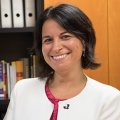
Leire San José
UPV/EHU
Leire San-Jose is Full Professor at University of the Basque Country (UPV/EHU) in Bilbao (Spain), and she is also Visiting Research Fellow at Huddersfield Business School (United Kingdom). She is leader of ECRI Ethics in Finance & Social Value Research group. She was previously a Visiting Scholar at Loyola University Chicago under the supervision of Professor John Boatright and at Darden Business School under the supervision of Professor Edward Freeman. Her most important publications are about cash management, social value and stakeholder theory.
Registration fees
| Face-to-face | Until 31-05-2024 | Until 09-09-2024 |
|---|---|---|
| 25,00 EUR | 59,00 EUR | |
| - | 84,00 EUR | |
| - | 71,00 EUR | |
| - | 59,00 EUR |
Venue
Miramar Palace
Pº de Miraconcha nº 48. Donostia / San Sebastián
Gipuzkoa
Miramar Palace
Pº de Miraconcha nº 48. Donostia / San Sebastián
Gipuzkoa
Sustainable development goals
Agenda 2030 is the new international development agenda approved in September 2015 by the United Nations. This agenda aims to be an instrument to favour sustainable human development all over the planet, and its main pillars are the eradication of poverty, a reduction in equality and vulnerability and fostering sustainability. It is a unique opportunity to transform the world up to 2030 and guarantee human rights for all.

17 - Partnerships for the goals
Strengthen the means of implementation and revitalise the World Alliance for Sustainable Development. Key issues: mobilisation of resources, 0.7% of GDP for official overseas development aid, finances, cooperation in technology and innovation, ecologically rational technologies, skills building, universal and multilateral trade system, coherence on the legislative and institutional levels, availability of data, supervision, indicators and accountability.
More information